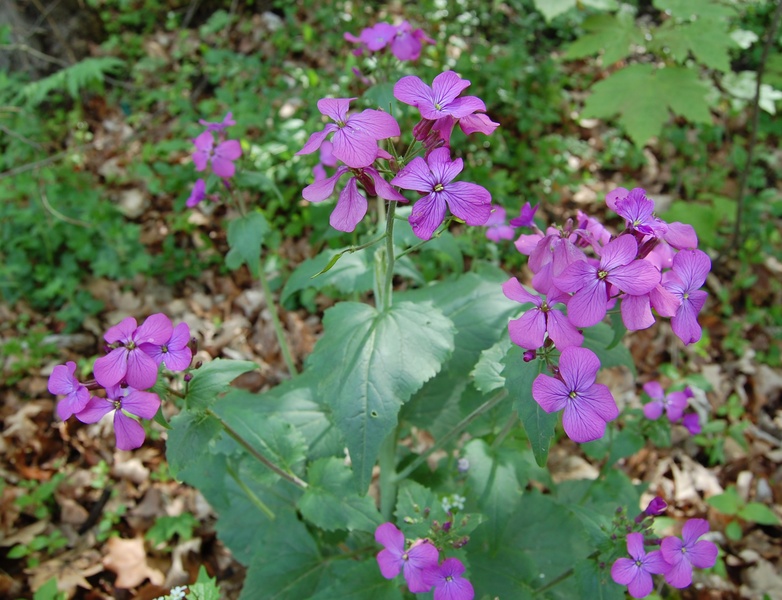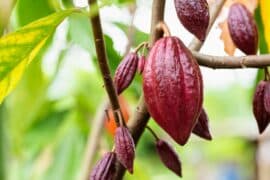Honesty plant
(Lunaria annua annua)

Description
Lunaria annua annua, commonly known as Honesty, is a biennial flowering plant native to the Balkans and southwestern Asia. It belongs to the family Brassicaceae, which includes other popular vegetables and ornamental plants such as broccoli, cauliflower, kale, and mustard. In this encyclopedia-style article, we will dive deep into the various aspects of the Honesty plant, including its morphology, habitat, cultivation, and uses. Morphology: Honesty plants have an upright, branching growth habit and can grow up to 60-100 cm in height. The leaves are oval or heart-shaped, hairy, and toothed at the edges. The flowers are borne in clusters at the tips of the stems and are typically lavender or white with dark purple veins. The blooms appear in the spring and early summer, followed by distinctive seedpods, which give the plant its common name. The seedpods are flat, round, and papery, resembling silver coins. They are around 3-8 cm in diameter and hang vertically from the stems, adding an interesting and unique visual element to the plant. The seedpods contain small, round seeds that can be collected for propagation or used in crafts. Habitat: Honesty plants prefer full sun to partial shade and well-drained soil. They are adaptable to various soil types, including clay, loam, and sandy soils, and can tolerate drought conditions once established. Honesty plants are hardy and can survive in USDA hardiness zones 4-9. The plant is native to the Mediterranean region, where it grows in open woodlands, meadows, and along roadsides. It has been naturalized in other parts of Europe, North America, and Australia. Cultivation: Honesty plants are easy to grow from seed and are typically propagated in the fall or early spring. Sow the seeds directly into the ground, around 1 cm deep, and 30-60 cm apart. Water the soil regularly until the seedlings emerge, which should take around 7-14 days. Once the seedlings are established, thin them out to around 30-45 cm apart to give each plant enough space to grow. Honesty plants require little maintenance beyond regular watering, especially during hot and dry periods. The plant may also self-seed if left to mature, but keep in mind that the self-seeded plants may not produce the same flower color as the parent plant. To prevent unwanted self-seeding, deadhead the spent blooms before they turn into seedpods. Uses: Honesty plants are popular in cottage gardens and as cut flowers due to their attractive flowers and distinctive seedpods. The seedpods can be dried and used in flower arrangements, wreaths, or as decorative elements in crafts. In addition to its ornamental value, Honesty plants have been used for medicinal purposes in traditional herbal medicine. The leaves and seeds are said to have diuretic, laxative, and expectorant properties and have been used to treat various ailments such as bronchitis, asthma, and urinary tract infections. In conclusion, Lunaria annua annua, or Honesty, is a beautiful and versatile plant that can add interest to any garden. With its attractive flowers, distinctive seedpods, and medicinal properties, it is no wonder that it has been cultivated and enjoyed for centuries.
Taxonomic tree:







